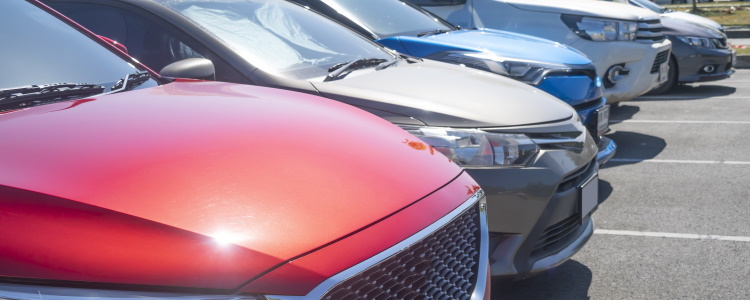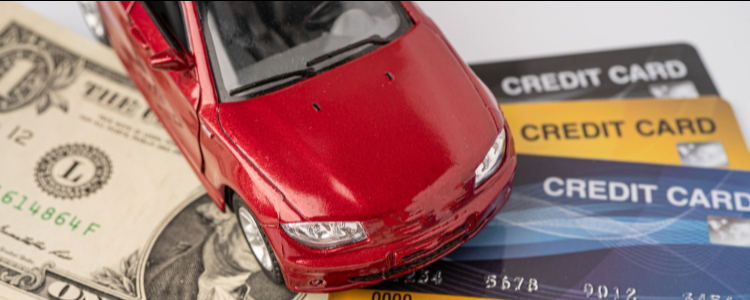Three years after the pandemic threw a wrench into our lives, and the much-touted "chip shortage" is still plaguing us. Now, it's not so much about production slowdown as it is a lack of certain features from some automakers. This means you may get the car you want but that extra comfort option, like seat heaters, for instance, may be in short supply.
In other cases, manufacturers have still not ramped up production of certain models, meaning there are fewer vehicles available in showrooms, and you may have to work with your dealer to find the vehicle you want. Even though the bulk of the chip shortage for cars is behind us, there are still some consequences we could experience for a long time to come.
What Caused The Chip Shortage?
Factories that produce semiconductor microchips take months to be retooled to make a specific kind of chip. The lines that were making automotive chips were retooled early on in the pandemic to meet the demand for home computers, game systems, and televisions, as people came under stay-at-home orders.
When it became clear that vehicle sales weren't going to be slowed by the pandemic, automakers once again ordered chips but found themselves at the back of a growing queue. The inventory shortages we're seeing now are the result.
A lack of new cars caused shoppers to buy more preowned cars, creating a used car shortage. According to insight from Edmunds, there were 77% fewer new cars on dealership lots in 2021 compared to 2019.
Why Did Car Prices Go Up?
 As a car buyer, this means there was, and still is, less overall stock to choose from. This caused trouble all along the credit spectrum for automotive shoppers during the pandemic and through last year – from luxury new car buyers all the way down to the less traditional special finance used car shoppers.
As a car buyer, this means there was, and still is, less overall stock to choose from. This caused trouble all along the credit spectrum for automotive shoppers during the pandemic and through last year – from luxury new car buyers all the way down to the less traditional special finance used car shoppers.
When demand is high, like it was during the pandemic, dealers and manufacturers don't have to discount vehicles to make them move. In fact, prices start to go up. According to Edmunds, new vehicles are now selling at an average of $513 more than the sticker price. That's a big swing since pre-pandemic when the average new car sold for over $2,000 less than sticker.
As a shopper, many automakers are recommending you pre-order your new cars to get the vehicle you want. When you go this route, you're going to end up waiting a few months to get your hands on the car, but you're guaranteed to get what you want within reason – some newer models may be missing features and improvements due to a lack of microchips.
Why Are Cars So Hard To Find?
Cars are as hard to find as they were just one to two years ago, but the projected forecast is showing a slowdown globally. According to recent Automotive News reporting, numbers from AuoForecast Solutions show that there will be approximately 2.7 million fewer vehicles produced this year than were originally thought. In 2022 there were over 4M fewer vehicles produced worldwide.
Here in the U.S. and North America, we aren't feeling the pinch as much as other countries, but the lack of microchips is still causing some automakers strife.
Maybe you're not worried about the chip shortage, since you're not shopping for a new car right now. Unfortunately, the lack of microchips is impacting your car shopping experience, too. Some shoppers who would be buying new have opted not to wait, and like in the early days of the pandemic, are still scooping up the deals on cars that are on the lots. In some cases, would-be new car shoppers are buying used, biting into the certified pre-owned stock, and forcing those consumers to look further down the line, too.
If you're not sure where this leaves you as a bad credit consumer, rest assured more and more used cars are coming to the market daily as new car inventories increase. With production issues easing, the real pinch will be felt more in brand-new models and tech-heavy vehicles like EVs. Because supply chain issues have forced automakers to pair down production of new cars, trucks, and SUVs the prices and deals you see this year may not be as good as you'd expect.
Is The Chip Shortage Over?
Though we're not seeing the massive slowdown in production that the world experienced in 2021, we're still feeling the effects of a chip shortage that's far from over. Many manufacturers are still being affected, and supply chain issues are being felt in different ways by different companies.
According to CarsDirect, some ways in which consumers were seeing the chip shortage in 2022 (and possibly continuing into this year) were some Genesis models have lost some safe assist features, Ford Mustang Mach-E orders were delayed, Toyota Tacoma started coming with only one keyless remote, and Buick Encores dropped their entry-level 1.2L engine.
These are among a host of other issues being seen by different automakers, and these changes are likely to continue being seen throughout 2023.
















